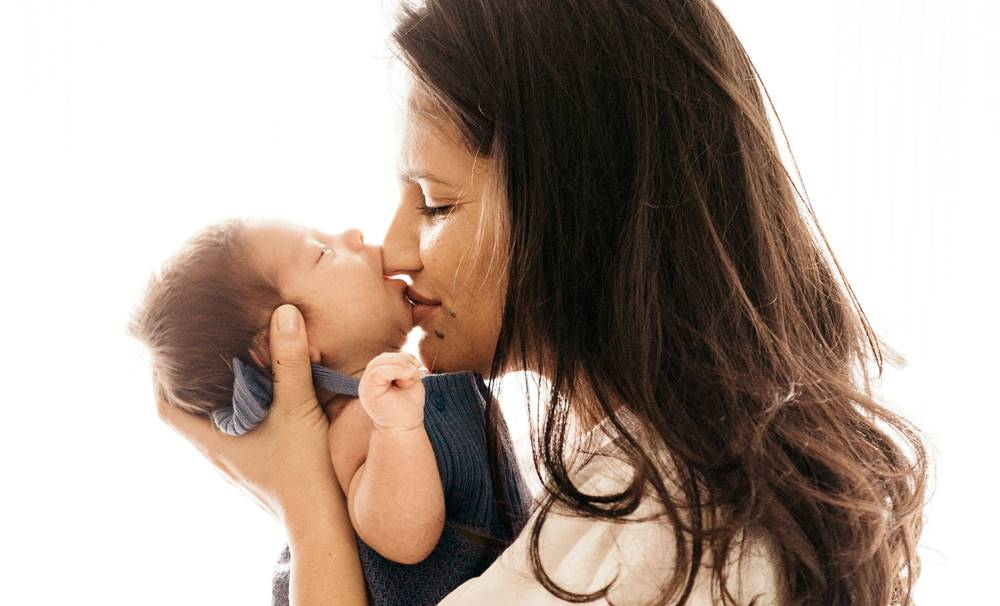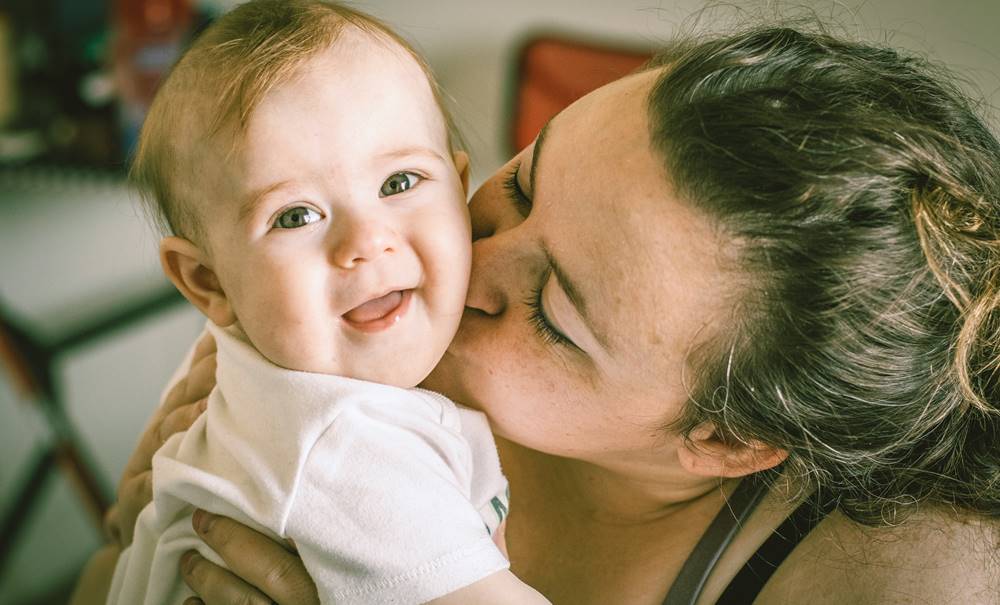Parenting in the 21st Century: Modern vs. Traditional Parenting Styles
The path of parenthood is dynamic and ever-evolving, according to the constantly shifting social environment. Modern parenting techniques are replacing old ones as parents deal with a plethora of chances and problems in the twenty-first century.

The article explores the contrasts between modern and traditional parenting styles, analyzing the factors influencing these changes and their impact on children's development.
What is Parenting?

Parenting is fundamentally the process of loving, caring for, guiding, and supporting a child as they grow. It entails attending to the child's physical, emotional, and psychological needs in order to support their development into mature, responsible adults.
Parenting Styles

The broad approaches and techniques parents employ to raise their children are referred to as parenting styles. Distinct parenting approaches can yield unique outcomes regarding a child's growth, conduct, and general welfare. The following list of typical parenting styles and associated tips:
- Authoritative Parenting: Warm and accommodating, authoritative parents also establish firm limits and expectations. They foster self-reliance while keeping
open lines of communication and assistance. Tips:
- Encourage honest dialogue with your child.
- Apply the regulations and penalties consistently.
- Encourage autonomy and decision-making.
- Authoritarian Parenting: Authoritarian parents have little tolerance for compromise and are strict enforcers of the law. They place a high value on control
and compliance. Tips:
- Maintain a balance between regulations and compassion.
- Describe the regulations.
- Allow for some flexibility and negotiation.
- Permissive Parenting: Permissive parents tend to be indulgent and lenient, often avoiding confrontation. They might put their child's wishes ahead of clearly
defined boundaries. Tips:
- Establish reasonable limits.
- Provide structure and consistency
- Encourage responsibility and accountability.
- Uninvolved (Neglectful) Parenting: Disengaged parents offer minimal advice or emotional support. They might disregard the demands of their child. Tips:
- Seek professional support if needed.
- Create routines and provide regular attention.
- Reestablish a closer relationship and reconnect with your child.
- Helicopter Parenting: Helicopter parents are overly involved and hover over their children, often micromanaging their activities and decisions. Tips:
- Allow for age-appropriate independence.
- Foster resilience by letting children handle challenges.
- Encourage problem-solving skills.
- Free-Range Parenting: Children of free-range parents are given greater freedom and responsibility, which encourages independence and curiosity. Tips:
- Increase liberties gradually in accordance with maturity and age.
- Provide precise safety instructions.
- Encourage open communication about experiences.
- Positive Parenting: Positive parenting is centered on using constructive discipline, encouragement, and praise to reinforce positive conduct. Tips:
- To encourage positive behavior, give rewards.
- Clearly define the rules and the penalties.
- Foster a loving and supportive environment.
- Attachment Parenting: Attachment parenting is centered on developing a tight physical link and being receptive to the needs of the kid in order to create
strong emotional bonds. Tips:
- Give attending to your child's cues first priority.
- Encourage secure attachment through physical closeness.
- Build a supportive and nurturing environment.
Parenting Tips

Following are some parenting tips, regardless of the parenting style.
- Lead by Example: Set an example of the morals and conduct you like your kids to follow.
- Communication is Key: Encourage candid and open dialogue with your child.
- Consistency Matters: Be consistent with rules, expectations, and consequences.
- Encourage Independence: Support your child's age-appropriate independence and decision-making.
- Provide Unconditional Love: Make sure your youngster understands that their actions are adored despite what they do.
- Be Flexible and Adaptive: Modify your parenting approach in accordance with your child's evolving requirements and stages of growth.
- Prioritize Quality Time: Engage in activities that you both like while spending quality time with your child.
- Seek Support: Don't be afraid to ask other parents, experts, or support groups for advice.
Never forget that raising children well requires a balance of love, direction, and adaptability. Adapt your strategy to your child's particular personality, and be open to learning and developing with them.
Advantages of Parenting

Parenting offers numerous advantages for both children and parents. Here are some key benefits:
- Emotional Support: By offering emotional support, parents give their kids a safe, stable atmosphere. With this support, kids can grow emotionally resilient and have a strong sense of self-worth.
- Guidance and Discipline: Establishing limits and offering direction are essential components of good parenting. Children gain self-control, responsibility, and an understanding of right and wrong as a result of this.
- Education and Skill Development: A child's early education is greatly influenced by their parents. Through exercises, dialogues, and exposure to a range of situations, they promote language development, cognitive growth, and the acquisition of different abilities.
- Socialization: By teaching their children cooperation, empathy, and proper social behavior, parents help their children develop socially. Additionally, they are essential in assisting kids in developing healthy bonds with adults and their peers.
- Cultural and Moral Values: Parents frequently impart moral, ethical, and cultural values to their offspring. This contributes to a child's comprehension of right and wrong and helps mold their belief system.
- Health and Well-being: By offering wholesome food, access to healthcare, and a secure environment, parents can contribute to their child's physical health and wellbeing. Childhood-formed healthy behaviors frequently carry over into adulthood.
- Emotional Bonding: A child's general wellbeing depends on the emotional tie that develops between parents and children. This relationship gives a youngster a sense of stability and supports their emotional and mental growth.
Disadvantages of Parenting
Although being a parent offers many benefits, there are drawbacks and difficulties as well. It's critical to understand that these disadvantages might differ greatly depending on personal circumstances, parenting philosophies, and outside influences. The following are some typical drawbacks of being a parent:
- Financial Strain: Bringing up kids may be costly. Education, healthcare, extracurricular activities, and daily expenses are all included in the costs. Stress brought on by financial difficulty can affect the family's general well-being.
- Loss of Personal Time and Freedom: Being a parent demands a large time investment. Parents frequently have less free time for their interests, hobbies, and personal pursuits. There may be restrictions on your ability to travel or make impulsive decisions.
- Impact on Career: It can be difficult to juggle parenting duties and employment obligations. A work-life balance can be difficult to maintain for some parents, especially mothers who may experience job setbacks.
- Relationship Strain: Partner relationships may suffer as a result of parenting. Conflicts and difficulties in preserving a solid connection can arise from the responsibilities of childcare and different parenting philosophies.
- Sleep Deprivation: Particularly new parents frequently have restless nights since they have to feed, comfort, or tend to their child's demands. Lack of sleep can have an impact on one's physical and emotional well-being.
- Loss of Independence: As a parent, you frequently have to prioritize your child's demands. As a result, parents may become less independent of themselves and change their priorities to put their kids' needs first.
- Social Isolation: Social isolation can result from parenting, particularly if parents struggle to strike a balance between their responsibilities as parents and social activities. Fewer opportunities to interact socially with friends or participate in community activities may arise from a lack of time and energy.
Parenting in the 21st Century: Modern Parenting

Modern parenting is impacted by a society that is changing quickly due to social changes, technology breakthroughs, and shifting family patterns. The following are some important elements and difficulties of parenting in the modern era:
- Technology Integration: Bringing up kids in the digital age presents some difficulties for parents. The ubiquitous utilization of cellphones, social media, and other digital technologies has an effect on the manner in which families interact, obtain information, and supervise their children's screen time.
- Information Overload:: There is a wealth of information available to parents on health, education, and raising children. It might be difficult to sort through all of this information in order to make wise selections.
- Digital Parenting Challenges: Concerns over cyberbullying, online safety, and the effects of excessive screen time on children's development are brought up by the widespread use of digital devices and online platforms. To guarantee a good balance, parents need to actively participate in digital parenting.
- Work-Life Balance: The task of juggling the demands of a profession and family obligations is one that many parents encounter. For parents, having remote work options and flexible work schedules has become increasingly crucial.
- Changing Family Structures: The idea of a family has changed over time, and different family arrangements are now more widely accepted. Blended families, same-sex parent households, and single-parent households are becoming more prevalent.
- Parental Involvement in Education:: The importance of parental involvement in their child's education is rising. It is required of parents to assist their children's learning at home, participate actively in their schools, and understand the nuances of the contemporary educational system.
- Mental Health Awareness: A greater understanding of mental health concerns forces parents to focus more on the emotional health of their kids. Being aware of and responding to mental health issues has become essential to contemporary parenting.
- Environmental Concerns: Growing environmental consciousness among parents has resulted in increased emphasis on eco-friendly and sustainable parenting techniques. This covers decisions about goods, cuisine, and way of life.
- Early Exposure to Information: Today's kids are exposed to a lot of information at a young age, both good and bad. It is imperative for parents to supervise their children's media intake, deal with false information, and impart critical thinking abilities.
- Financial Pressures: Parents may experience financial stress due to a variety of factors, including growing living expenses, economic issues, and future uncertainty. Taking care of a child's needs while juggling financial obligations is a big worry.
The demands of 21st-century parenting call for adaptability, honest communication, and a readiness to accept change. Maintaining awareness, creating close family links, and looking for both online and offline support are all important strategies for overcoming these obstacles. Parenting styles will probably continue to change in response to the shifting social conventions of the 21st century.
Advantages of Parenting in the 21st Century

The benefits of parenthood in the twenty-first century are unique and frequently impacted by social norm shifts and technology improvements. The following are some benefits of becoming a parent in the current era:
- Access to Information: There is never been more information available to parents about child development, parenting styles, and health issues. Apps and online resources provide insightful analysis and helpful guidance for a range of parenting issues.
- Digital Learning Opportunities: Through interactive content, online courses, and educational apps, technology offers kids better learning chances. To enhance their children's learning, parents can use digital tools to augment traditional education.
- Communication and Connectivity: Even when they are geographically separated, parents can maintain a connection with their kids by using social media, messaging applications, and video calls, among other communication methods. This strengthens emotional ties and facilitates communication across geographic distances.
- Online Support Communities: Parents can connect with others going through similar struggles by using the internet. Online parenting groups offer a forum for people who share similar interests to connect, exchange stories, and exchange advice.
- Flexible Work Arrangements: More flexible work arrangements, such as remote work and flexible schedules, have become more common in the twenty-first century. This makes it possible for parents to better juggle their obligations to their families and their careers.
- Educational Apps and Tools: Children's learning experiences can be improved by using the many educational applications and resources available thanks to technology. Learning may be made more efficient and fun with the use of interactive and interesting information.
- Parental Controls: Parents may manage and keep an eye on their children's online activity by implementing efficient parental controls on digital devices. This promotes age-appropriate content and keeps the internet a secure place.
Though there are particular difficulties associated with parenting in the twenty-first century, these benefits draw attention to the good things that technology and cultural hifts have to offer parents. By using these tools, parents may give their kids a nurturing and stimulating atmosphere.
Disadvantages of Parenting in the 21st Century
The 21st century brings with it significant drawbacks and difficulties for parents, which are frequently linked to the quick speed at which technology is developing and the changes in social mores. The following are a few disadvantages of parenting in the present day:
- Digital Distractions: The widespread use of screens and digital gadgets can cause distractions for kids and adults alike, which lowers the standard of communication and family time.
- Online Safety Concerns: Protecting their children from unsuitable content, online predators, and cyberbullying is a difficulty that parents must tackle.
- Screen Time Management: Whether used for learning or fun, excessive screen time can have negative effects on kids' physical and emotional well-being. It might be difficult to find a balance between using technology and other activities.
- Social Media Pressure: Social media portrayals of societal expectations may put pressure on parents and kids to live up to them, which can result in feelings of inadequacy, comparison, and unattainable standards.
- Cybersecurity Risks: Families are more vulnerable to cybersecurity dangers due to increased connection, such as identity theft, online fraud, and data breaches. Parents need to take precautions to safeguard their family's internet privacy.
- Work-Life Integration Challenges: Although flexible work schedules have advantages, they can also obfuscate the lines between work and home life, making it difficult for parents to completely disengage from their careers.
- Information Overload: It can be difficult to keep up with all of the information available on parenting, education, and health. A parent's bewilderment and decision fatigue may result from trying to sort through the deluge of research and guidance.
- Technological Generation Gap: The swift advancement of technology can provide a challenge for parents, resulting in a generational divide in comprehending and supervising their children's digital endeavors.
Parents must be conscious of these issues and take proactive measures to resolve them, such as maintaining open lines of communication, establishing limits, and keeping up with cultural and technological developments. Establishing a healthy and encouraging family atmosphere requires striking a balance between the advantages and disadvantages of parenting in the twenty-first century.
Traditional Parenting

In a particular culture or society, the term "traditional parenting" refers to the customary methods, beliefs, and behaviors that have been handed down through the centuries. These methods frequently have their roots in ingrained attitudes, traditions, and social mores. Even while traditional parenting approaches might differ greatly between cultures and geographical areas, they often have the following traits:
- Authoritarianism: An authoritarian parenting approach is common in traditional parenting, where parents impose rigid rules and demand obedience from their kids. Generally, discipline is rigid and leaves little opportunity for discussion or compromise.
- Respect for Authority: A major component of traditional parenting is showing respect to parents, elders, and other community authority figures.
- Gender Roles: Traditional parenting typically upholds gender norms, giving boys and girls different expectations and obligations. Activities and habits related to one's gender are frequently promoted.
- Collectivism: Collectivist values—which prioritize family, community, and societal peace over individual goals—are frequently promoted by traditional parenting.
- Preservation of Cultural Values: The goal of traditional parenting is to pass on cultural beliefs, practices, and traditions to the next generation. Language, customs, and cultural traditions are all included in this.
- Structured Roles within the Family: Every family member in a traditional family typically has a role that is structured and clearly defined. It's possible that expectations about what parents, kids, and other family members should do are very apparent.
- Emphasis on Respect and Obedience: Youngsters are supposed to follow social conventions and treat their elders with respect. Disobedience may have harsh repercussions, therefore obedience is frequently regarded as a virtue.
- Interdependence: A sense of interdependence is fostered inside the family unit via traditional parenting, when family members rely on one another for help and support.
- Religious Influence: Religion views can impact traditional parenting practices, as moral ideals and actions are largely shaped by religion teachings.
- Parental Sacrifice: Conventional parents may place a higher priority on their kids' achievement and well-being, frequently sacrificing their own happiness in the process.
It's crucial to remember that different cultures have different conventional parenting practices depending on things like region, socioeconomic level, and unique family dynamics. Furthermore, because civilizations are dynamic, parenting styles within a particular culture may change over time.
Advantages of Traditional Parenting

- Clear Structure and Rules: Children are given a sense of security and stability by traditional parenting, which offers a clearly defined structure with clear expectations.
- Respect for Authority: Children brought up with traditional parental principles are likely to develop a respect for those in positions of authority, which can help them integrate more successfully into society and adhere to social norms.
- Emphasis on Family Values: Family values are highly valued in traditional parenting because they help to build strong, close-knit relationships and a sense of belonging.
- Preservation of Cultural Heritage: By transferring traditions, language, and practices from one generation to the next, traditional parenting contributes to the preservation of cultural heritage.
- Promotion of Responsibility: By assigning and receiving age-appropriate responsibilities, children can learn about responsibility and the value of being a part of the family.
- Sense of Community: By emphasizing collectivism, traditional parenting can foster a sense of belonging and interconnectedness among family members.
- Inculcation of Moral Values: traditional parenting frequently involves imparting moral and ethical ideals to children, giving them a solid basis on which to base their moral judgments.
- Parental Guidance and Authority: In traditional parenting methods, parents usually take the lead in making decisions, offering direction and guidance based on their own experiences.
Disadvantages of Traditional Parenting
- Limited Individual Autonomy: Children raised by parents in accordance with traditional parenting practices may not have the freedom to follow their own interests and make decisions for themselves.
- Potential for Authoritarianism: The rigorous rules and focus on compliance associated with traditional parenting might create an atmosphere that is authoritarian, impeding candid communication and limiting creativity.
- Resistance to Change: Conventional parenting approaches could be resistant to adjusting to societal shifts, which could make it more difficult for a child to grow up in a society that is changing quickly.
- Pressure to Conform: Kids brought up in conventional parenting styles could experience pressure to live up to society norms, which would restrict their freedom to be unique.
- Emotional Repression: Adhering strictly to traditional norms may discourage people from expressing their emotions honestly, which may result in emotional repression or make it harder to control one's emotions.
- Potential for Guilt and Shame: Traditional parenting methods' use of punishments may be based on guilt or shame, which may have an adverse effect on a child's mental health and sense of self.
- Limited Exposure to Diverse Perspectives: A child's capacity to form a wide and inclusive worldview may be hampered by traditional parenting, which may limit exposure to a variety of experiences and points of view.
It's critical to understand that while parenting styles differ throughout countries and particular families, these benefits and drawbacks are not always applicable. In addition, a lot of parents combine traditional and modern parenting techniques to fulfill their kids' specific requirements and help them deal with the complexity of today's culture.
Modern vs. Traditional Parenting
| Aspect | Modern Parenting | Traditional Parenting |
|---|---|---|
| Flexibility and Adaptability | A focus on adaptability and modifying parenting styles in accordance with the demands of each child. | Typically more structured with set rules and less adaptability. |
| Emphasis on Independence | Encourages children's independence by giving them the freedom to choose and grow from their experiences. | Might take a more authoritative stance, directing them with explicit expectations and guidelines. |
| Communication | Open communication is emphasized, and kids are encouraged to share their ideas and emotions. | May have clear lines of authority, with communication often top-down. |
| Technology Integration | Actively navigates the digital age, incorporating technology into education and daily life. | May approach technology with caution and limit screen time, focusing on more traditional forms of learning. |
| Work-Life Balance | Strives for a balance between professional and family responsibilities, often leveraging flexible work arrangements. | May prioritize traditional work structures with less emphasis on flexible arrangements. |
| Gender-Neutral Parenting | Challenges traditional gender roles, promoting equality in expectations and opportunities. | May adhere to traditional gender roles, with specific expectations for boys and girls. |
| Structured and Authoritative | Tends to be more structured with clear rules, while maintaining an authoritative parenting style. | Typically more structured and authoritative, emphasizing discipline and adherence to societal norms. |
| Preservation of Cultural Values | Acknowledges cultural heritage but may adopt a more eclectic approach. | Strong emphasis on preserving and passing down cultural values, customs, and traditions. |
| Collectivism | Values family and community but may also prioritize individual pursuits. | Strong emphasis on collectivist values, prioritizing family and community over individual pursuits. |
| Parental Decision-Making Authority | Decision-making may be more collaborative, involving children in certain discussions. | Parents often hold primary decision-making authority, with limited input from children. |
| Cautious Approach to Change | Tends to embrace change and new parenting philosophies. | May be more resistant to societal changes, maintaining a cautious and conservative approach. |
Sharing is stylish! Gift your friends this awesome read!